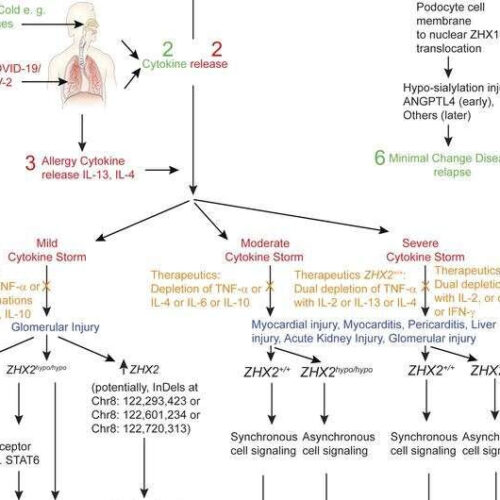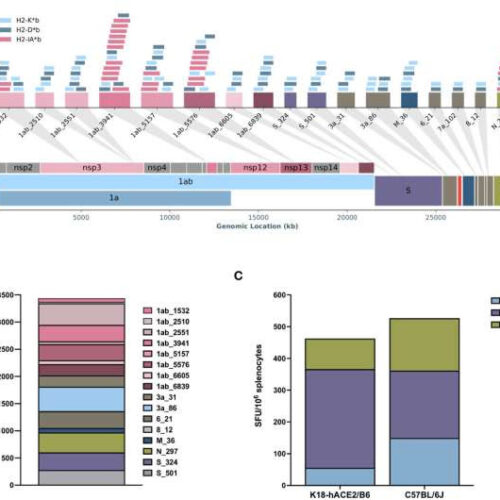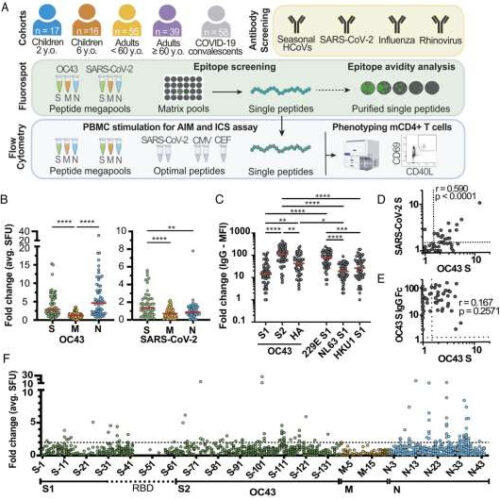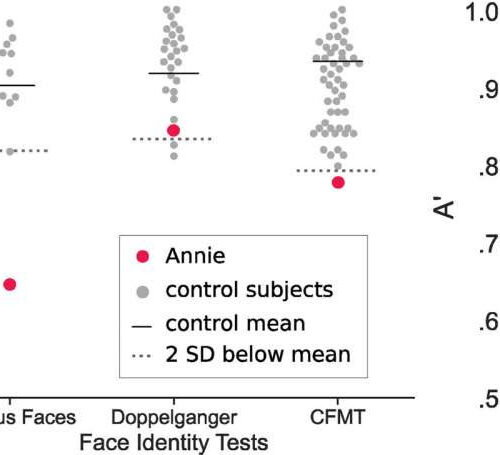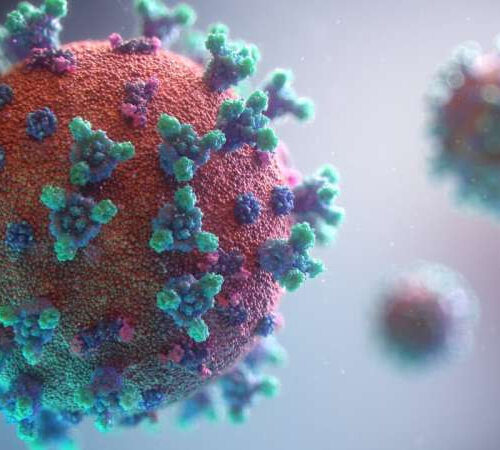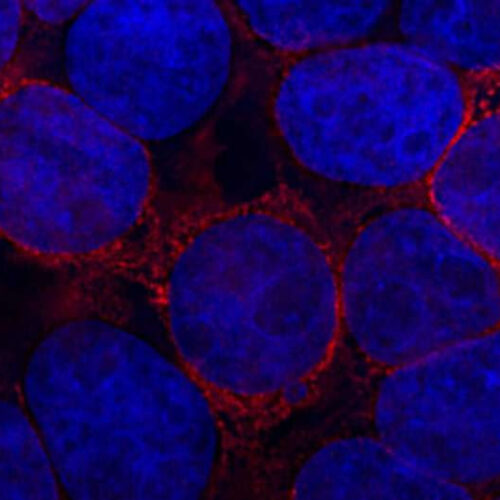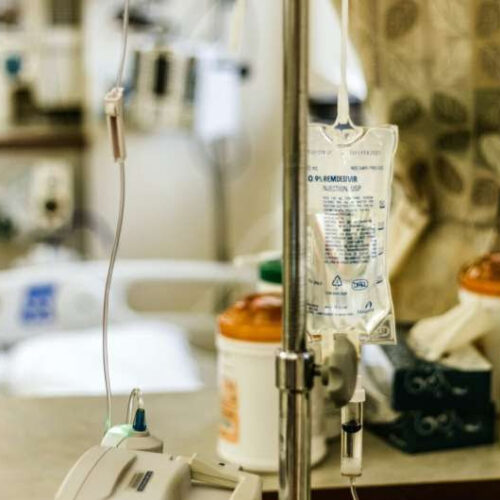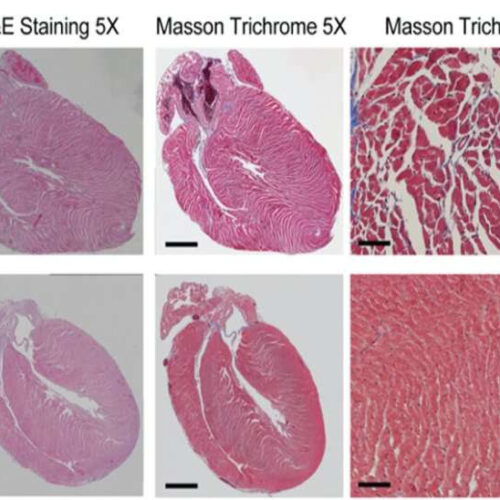by Polly Tita, Rush University Medical Center Graphical abstract. Credit: JCI Insight (2023). DOI: 10.1172/jci.insight.166012 Scientists have uncovered a new understanding of how COVID-19 causes severe multi-organ injury in some patients and the pathways to stopping the cytokine storms behind them, according to new research published today in the Journal of Clinical Investigation Insight. “The research inspires a paradigm shift in how we think about...
Tag: <span>COVID-19</span>
T-cell vaccine for COVID-19 may last longer than current vaccines
by Pennsylvania State University The RAVEN (Rapidly Adaptive Viral rEspoNse) antigen-presenting cell targeting (APCt)-CoV2-T vaccine induces specific T-cell responses in C57BL/6J and K18-hACE2/BL6 mice. (A) Schematic overview of the in silico RAVEN predicted T-cell hotspots encoded in the APCt-CoV2-T-cell vaccine. A T-cell hotspot represents a region with several predicted major histocompatibility complex (MHC) class I (H2-Kb,...
Are autoantibodies in COVID-19 less harmful than previously thought?
by Berlin Institute of Health in der Charité (BIH) 3D model of an antibody. Credit: Tokenzero Critically ill COVID-19 patients often have antibodies in their blood that bind to the body’s own structures, so-called autoantibodies. Scientists from the BIH at Charité and the Max Delbrück Center have now discovered that these autoantibodies frequently bind to...
Researchers develop a universal oral COVID-19 vaccine that prevents severe illness in hamsters
by University of California, Los Angeles Experimental schedule and weight loss after challenge. (A) Experiment schedule. Syrian hamsters (8/group, 4 females, 4 males) were immunized ID, IN, SQ, or PO three times on weeks 0, 3, and 6 with LVS ΔcapB vector (ΔcapB) or rLVS ΔcapB/MN (ΔcapB/MN) vaccine; challenged IN on week 10 with 104 PFU...
Common cold may give children immunity against COVID-19, reveals study
by Karolinska Institutet Study outline and mapping of T cell responses against OC43 and SARS-CoV-2. (A) Outline of the study design, cohorts, and methodology created with BioRender.com. Cells were stimulated with 20-mer peptides spanning the spike (S), membrane (M), and nucleocapsid (N) proteins from OC43 and SARS-CoV-2, followed by analysis using IFN-γ FluoroSpot and flow cytometry...
COVID-19 can cause ‘face blindness,’ according to new study
by Dartmouth College Results of face recognition tests. The left panel shows % correct for Famous Faces, Doppelganger, and Cambridge Face Memory Test. The right panel shows A-Prime for the Faces Old-New Test, with values ranging from chance discrimination (0.5) to perfect discrimination (1.0). Annie’s results are in red; control participant results are gray with...
First nasal monoclonal antibody treatment for COVID-19 shows promise for treating virus, other diseases
by Brigham and Women’s Hospital Credit: Unsplash/CC0 Public Domain A pilot trial by investigators from Brigham and Women’s Hospital, a founding member of the Mass General Brigham health care system, tested the nasal administration of the drug Foralumab, an anti-CD3 monoclonal antibody. Investigators found evidence that the drug dampened the inflammatory T cell response and...
Explaining why some patients may test positive for COVID-19 long after recovery
by Greta Friar, Whitehead Institute for Biomedical Research Cells that have had a bit of SARS-CoV-2 mRNA put into them. DNA is in blue and the SARS-CoV-2 protein is in red. Credit: Liguo Zhang/ Whitehead Institute SARS-CoV-2, the virus that causes COVID-19, seems to have become a permanent presence in our lives. Research from Whitehead Institute Founding...
When is remdesivir effective for COVID-19?
by University of Basel Credit: Unsplash/CC0 Public Domain Remdesivir was one of the first medications approved for treatment of COVID-19. Clinical studies evaluated its effectiveness, but did not generate conclusive results. A new analysis of the study data shows that a specific group of patients benefits the most from the drug. Since the outbreak of the COVID-19...
How COVID-19 can impact the heart
by Biophysical Society Hearts from mice infected with COVID-19 have an increased percentage of fibrosis and dilation of the fibers—a common indicator of early cardiomyopathy in mice. Credit: Andrew Marks. COVID-19 infections can cause potentially life-threatening heart issues. Studies suggest that people with COVID-19 are 55% more likely to suffer a major adverse cardiovascular event,...

